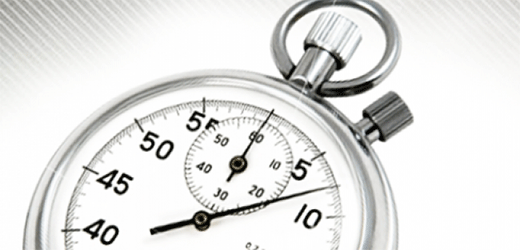How long does it take actually to take for the credit repair process? There seems to be no definite answer on the time frame for how long the credit repair process takes. If you google it, you will see there is not a standard amount of time and no straightforward answer. Unfortunately what happens most the time is when the question is asked” how long does it take for credit repair” you end up more confused then you were before you asked the question.
So here’s the answer broken down as simply and clearly as possible.
Scenario 1
The perfect scenario would be someone that has two to three credit cards, and one to two installment loans. An installment loan could be a home loan, personal loan, or a car loan. In a perfect world, it would be at least twelve months or older, and in good standing, and would have zero collections or negative items on the report but have high credit card balances. If you pay the credit card balances down as little as possible 3 to 5% balance vs the limit is ideal. Paying down the balances will give a significant boost to your credit scores. A great rule of thumb to keep in mind “The older the credit card, the lower the balance, the better your FICO score will be.” This scenario will be the fastest way to since a jump in your scores.
Scenario 2
If you have established trade lines; a few credit cards and installment loans that are in good standing, and have a few medical collections it may take around 35 to 45 days to several months. Depending on how you choose to dispute these items you may see faster results. It is important to remember by law credit reports needs to be accurate and verifiable. Whether you choose an actual Law firm or doing the credit repair process yourself, it is important to remember for faster results you will want to dispute all information at one time, not just one or two items every month.
Scenario 3
If your credit report only has one trade line that has only been open 12 months or less and has collections accounts reporting, removing the negative collections could only take 35 to 45 days, to several months. Although your scores may increase slightly, you will want to establish a thicker credit file, by establishing more trade lines. A good rule of thumb is to have two to three installment accounts and two credit cards accounts.
Depending on your situation your scores may or may not be high enough to get approved for installment loans or credit cards. If you are unable to get approved the traditional way, you may look for a bank or credit union that has a CD credit builder loan and look for credit card companies that have secured credit cards.
After these new trade lines have seven or more months of positive credit history and balances that are 30% or below of the limit, you will see a more significant increase in your scores. Waiting for thirty to sixty days before you get your credit ran after the seven months is the best.
Helpful Tips to Remember
If your credit profile is lacking the recommended amount of trade lines, think of trade lines as your ongoing homework. Trade lines are similar to homework for the credit bureaus to grade, if you do not have them, they have nothing to grade you on. Your credit score is like a grade, the better you handle the trade lines, the better score you will have.
If all you have are collections and negative items, and zero positive trade lines open, the negative items should still only take anywhere between thirty-five days to six months to remove depending on the severity of the negative things. Opening active and positive trade lines as soon as possible is an important piece of the credit repair process. The longer the account is open, the better it is for your credit profile.
Having any late payments or slow pays will be very damaging for your credit profile, and will affect your credit for about twenty-four months. Each credit profile is unique and has its own individual information, and having one thirty days late could lower your credit score by one hundred points.
Repairing your credit could take anywhere from forty days to years depending on the scenario and how you go about correcting it. If you just wait for things to fall off, it could take seven or more years. It is important to remember that credit reports must be timely, accurate, and verifiable by law. Seventy-nine percent of all reports have inaccurate information on them. There are many rules and regulations that debt collectors and credit bureaus must follow, and if you are not familiar with these laws, you may want to reach out to a professional law firm to make sure your report is accurate.

